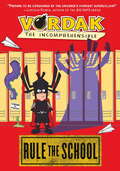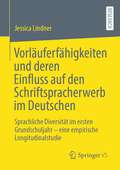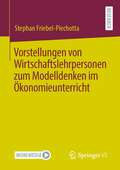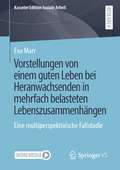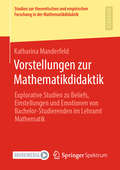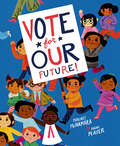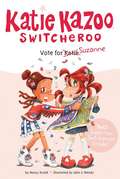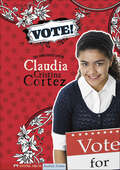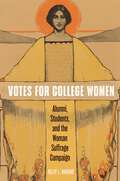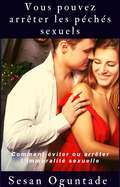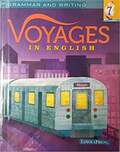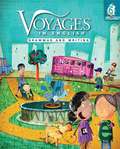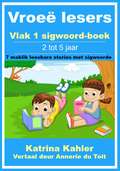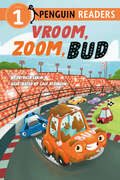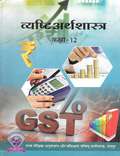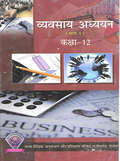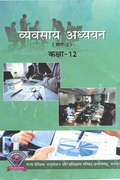- Table View
- List View
Vordak the Incomprehensible: Rule the School
by Vordak T. IncomprehensibleGreetings, goobers! After my latest experiment worked a little too well—transforming my rather fetching figure into something significantly smaller—I’ve been forced to return to those halls of horror better known as . . . school. But going back to junior high may be my greatest opportunity for mayhem in many a month! Try to keep up as I: • Dramatically defeat the daily dangers of schooldom—even though everyone is against me. • Strive to win the junior high presidential election by alerting my fellow students to the wonderfulness of Vordak the Incomprehensible, as well as the yuck-ness of my opponent, Marlena Lurchburger. • Mastermind a catastrophic career day, where that disgusting do-gooder Commander Virtue will finally, fiendishly be foiled. Fortunately for you, I have recorded every mischievous moment within these carefully crafted covers so that you may bask in my brilliance as I plot to RULE THE SCHOOL . . . and, eventually, THE WORLD! MUAHAHAHAHA!!!
Vorläuferfähigkeiten und deren Einfluss auf den Schriftspracherwerb im Deutschen: Sprachliche Diversität im ersten Grundschuljahr – eine empirische Longitudinalstudie
by Jessica LindnerDas Buch thematisiert die Ausprägung spezifischer Vorläuferfähigkeiten (rezeptive und produktive gesprochen-sprachliche Fähigkeiten sowie Kompetenzen im Bereich der phonologischen Informationsverarbeitung (phonologische Bewusstheit, Benennungsgeschwindigkeit)) und deren Einfluss auf den Schriftspracherwerb im Deutschen im Kontext des monolingualen und bilingualen Erstspracherwerbs sowie des Zweitspracherwerbs. Die empirische Longitudinalstudie zweier Kohorten im ersten Grundschuljahr berücksichtigt neben der sprachlichen Diversität der Kinder auch die besondere Beschulungssituation im Rahmen der COVID-19-Pandemie.
Vorstellungen von Wirtschaftslehrpersonen zum Modelldenken im Ökonomieunterricht
by Stephan Friebel-PiechottaStephan Friebel-Piechotta untersucht in der vorliegenden Studie die Vorstellungen von Wirtschaftslehrpersonen zum Denken in ökonomischen Modellen sowie zum Lehren und Lernen mit und über ökonomische(n) Modelle(n) im Wirtschaftsunterricht. Im theoretischen Teil der Arbeit wird das Modelldenken im Wirtschaftsunterricht konzeptionell aufgearbeitet. Im Rahmen der darauf aufbauenden qualitativen Interviewstudie werden die Vorstellungen der Lehrpersonen erhoben und analysiert. Hierbei werden auch die Unterschiede zwischen den Vorstellungen der Lehrpersonen und dem theoretischen Referenzrahmen zum Modelldenken im Wirtschaftsunterricht herausgearbeitet.
Vorstellungen von einem guten Leben bei Heranwachsenden in mehrfach belasteten Lebenszusammenhängen: Eine multiperspektivische Fallstudie (Kasseler Edition Soziale Arbeit #24)
by Eva MarrEva Marr untersucht Vorstellungen von einem guten Leben aus der Perspektive von Kindern und Jugendlichen, die Hilfen zur Erziehung gemäß §§ 27-35/35a SGB VIII in Anspruch nehmen und gleichzeitig einen kinderpsychiatrischen bzw. -psychologischen Behandlungsbedarf aufweisen. Mit der qualitativen Studie wird dem Desiderat begegnet, dass bislang die Perspektiven von mehrfach belasteten Mädchen und Jungen auf ihre Lebenswirklichkeit kaum erforscht worden sind. Anhand von drei Fallstudien werden biografie- und situationsanalytisch Entstehungsweisen, Bedingungen und Repräsentationsformen der Vorstellungen von einem guten Leben der Kinder und Jugendlichen untersucht, unter Einbezug der Perspektiven von Akteur*innen aus deren sozialen Nahbeziehungen sowie von professionellen Akteur*innen an den Schnittstellen fachübergreifender institutioneller Versorgung von Kinder- und Jugendhilfe, Schule und Kinder- und Jugendlichenpsychotherapie/-psychiatrie. Die Vorstellungen der Kinder und Jugendlichen von einem guten Leben werden in einem theoretischen Modell vernetzter und dynamischer Dimensionen gefasst, die sich im Lebenslauf relational zu den Erfahrungen und dem Erleben der Heranwachsenden bilden, prozesshaft verändern und für die Handlungspraxis Ressourcen eröffnen.
Vorstellungen zur Mathematikdidaktik: Explorative Studien zu Beliefs, Einstellungen und Emotionen von Bachelor-Studierenden im Lehramt Mathematik (Studien zur theoretischen und empirischen Forschung in der Mathematikdidaktik)
by Katharina ManderfeldKonstruktivistische Lerntheorien legen nahe, dass das mathematikdidaktische Lernen von Studierenden abhängig davon ist, welche Vorstellungen sie von Mathematikdidaktik besitzen. Das sich hieraus ergebende hochschuldidaktische Interesse, die studentischen Vorstellungen zur Mathematikdidaktik zu beforschen, wird mithilfe eines Mixed-Methods-Designs umgesetzt. In einer Fragebogenstudie werden Typen unterschiedlicher Vorstellungen gebildet. Mithilfe von Leitfadeninterviews werden anschließend tiefere Einblicke in die Vorstellungen einzelner Vertreterinnen und Vertretern der Typen erlangt. Die Ergebnisse beider Studien werden in vier Vorstellungen zur Mathematikdidaktik zusammengeführt, aus deren Betrachtung Handlungsoptionen zur Verbesserung der hochschulischen Lehre abgeleitet werden können.
Vote for Our Future!
by Margaret McNamaraIn this charming and powerful picture book about voting and elections, the students of Stanton Elementary School learn how we can find--and use--our voices for change. Every two years, on the first Tuesday of November, Stanton Elementary School closes for the day. For vacation? Nope! For repairs? No way! Stanton Elementary School closes so that it can transform itself into a polling station. People can come from all over to vote for the people who will make laws for the country. Sure, the Stanton Elementary School students might be too young to vote themselves, but that doesn't mean they can't encourage their parents, friends, and family to vote! After all, voting is how this country sees change--and by voting today, we can inspire tomorrow's voters to change the future.
Vote for Suzanne (Katie Kazoo Switcheroo Super Special #7)
by Nancy KrulikEveryone in Cherrydale has election fever! While the adults get ready to vote for town mayor, the fourth graders are holding an election for a fourth grade mayor! Both Katie and Suzanne are nominated, and Suzanne really wants to win.
Vote! (The Complicated Life of Claudia Cristina Cortez)
by Diana GallagherHumorous first-person narratives. These honest, humorous, and hopeful stories, told by Claudia herself, give readers a glimpse into the life of a regular 21st-century girl. Claudia handles every situation with confidence, cleverness, and a serious dash of cool.
Vote!: The Complicated Life of Claudia Cristina Cortez (Claudia Cristina Cortez)
by Diana G GallagherHumorous first-person narratives. These honest, humorous, and hopeful stories, told by Claudia herself, give readers a glimpse into the life of a regular 21st-century girl. Claudia handles every situation with confidence, cleverness, and a serious dash of cool.
Votes for College Women: Alumni, Students, and the Woman Suffrage Campaign
by Kelly L. MarinoExplores the College Equal Suffrage League’s work to advance the campaign for the Nineteenth AmendmentThe woman suffrage movement is often portrayed as having been led and organized by middle-aged women and mothers in stuffy, formal settings. This dominant account grossly neglects a significant demographic within the movement—college women. Between 1870 and 1910, the proportion of college women in the United States rose from 21 to 40 percent. By 1880, there were 155 private colleges in the Northeast and the South for female students and numerous coeducational institutions in the West. The widespread extension of academic training for women helped spur a well-organized campaign for female voting rights on college campuses, where suffragists found a new audience and stage to earn respect and support.Votes for College Women examines archives from the College Equal Suffrage League (CESL), established in 1900 as an affiliate of the National American Woman Suffrage Association, to illustrate the outsize and dynamic role that young women played in the woman suffrage movement. The book vividly illustrates how the CESL’s campaigns served a dual purpose: not only did they invigorate the Nineteenth Amendment campaign at a crucial moment, but they also brought about a profound transformation in the culture of women’s organizing and higher education. Furthermore, Kelly L. Marino argues that the CESL’s campaigns set trends in youth activism and helped lay the groundwork for later and more well-known college protests against gender inequality. Fascinating and timely, Votes for College Women shows how these brave women solidified the campus and the classroom as arenas for civic and social activism.
Vous pouvez arrêter les péchés sexuels.: Comment éviter ou arrêter l’immoralité sexuelle
by Sesan OgunotadeCeci s’adresse aux adolescents et aux jeunes de tous sexes, aux hommes et femmes mariés (qui désirent être fidèles à leur conjoint), aux parents (qui cherchent un guide pour enseigner la pureté sexuelle à leurs adolescents à la maison), aux écoles et autres agences éducatives, ainsi qu’aux organisations religieuses.
Voyages In English: Writing and Grammar Grade 6
by Ihm SistersOur Voyages in English Student Edition engages students with varied learning styles and allows teachers to adapt lessons to help meet all students’ needs in an easy-to-use, student-friendly format. The program is divided into two distinct parts—Part 1: Written and Oral Communication, and Part 2: Grammar—with integration opportunities built in. This way, teachers can reinforce the important relationships between grammar, writing, and speaking.
Voyages in English Grade 7: Grammar and Writing
by Mary Ellen Patricia Healey Adrienne Saybolt Anne McGuire Danielle Truex Emily AnnVoyages in English: Grammar and Writing, Grade 7, Student Edition
Voyages in English: Grammar and Writing (6th Grade)
by Patricia Healey Irene Kervick Anne B. Mcguire Adrienne SayboltThis book of "Voyages in English 2011" enables children to master grammar through direct instruction, rigorous practice, written application, and ongoing assessment. It provides master and novice teachers with support and straightforward, practical lesson plans that can be presented with confidence.
Vr-oo-m! (Into Reading, Level N #75)
by Diana Noonan Wayne BryantNIMAC-sourced textbook <p><p> Miss Griffin is a mystery! Each day, the roar from the engine of her little red car wakes everyone in Eliza’s street. Then, just when everyone has decided they have had enough of Miss Griffin’s noise, they see a big news van outside her house.
Vroeë lesers: Vlak 1 sigwoord-boek – 7 maklik leesbare stories met sigwoorde
by Katrina Kahler AnnerieAs jy jou gr. R- en kleuterskoolkinders wil leer hoe om te lees, dan is hierdie die perfekte boek om mee te begin. Die sigwoord-boek beskik oor eenvoudige teks, herhalende woorde en illustrasies om jou kind te help met vooruitskattingsvaardighede en begrip. Dit is uitstekend vir beginner-lesers tussen die ouderdomme van 2 tot 5 jaar. Die boek bestaan uit sewe stories, onder meer: Is jy my maatjie, Is jy ’n monster, Alles oor Kersfeesvader, Wil jy speel, As jy jou hond liefhet, Die lekkerste speelgrond nog en My eerste dag by die kleuterskool. Sigwoord-flitskaarte en aktiwiteite word in hierdie boek verskaf. Die boek is deur ’n professionele opvoedkundige geskryf wat vir die afgelope 30 jaar vir duisende kinders leer hoe om te lees. Jy sal jou kind ’n groot hupstoot gee as jy hierdie boek aankoop. As jy jou gr. R- en kleuterskoolkinders wil leer hoe om te lees, dan is hierdie die perfekte boek om mee te begin. Die sigwoord-boek beskik oor eenvoudige teks, herhalende woorde en illustrasies om jou kind te help met vooruitskattingsvaardighede en begrip. Dit is uitstekend vir beginner-lesers tussen die ouderdomme van 2 tot 5 jaar. Die boek bestaan uit sewe stories, onder meer: Is jy my maatjie, Is jy ’n monster, Alles oor Kersfeesvader, Wil jy speel, As jy jou hond liefhet, Die lekkerste speelgrond nog en My eerste dag by die kleuterskool. Sigwoord-flitskaarte en aktiwiteite word in hierdie boek verskaf. Die boek is deur ’n professionele opvoedkundige geskryf wat vir die afgelope 30 jaar vir duisende kinders leer hoe om te lees. Jy sal jou kind ’n groot hupstoot gee as jy hierdie boek aankoop.
Vroom, Zoom, Bud (Penguin Young Readers, Level 1)
by Patricia LakinVroom zoom with Bud as he tries to win the race!Bud always loves to be muddy. When he enters a race, he gets distracted by a mud puddle! Should he jump in, or finish the race?
Vukani Madoda Kusile: UBC contracted (Maskew Miller Longman Ser.)
by M. DandalaVUKANI MADODA KUSILE: POETRY ANTHOLOGY AND STUDY NOTES GR 12
Vukani Madoda Kusile: UBC uncontracted (Maskew Miller Longman Ser.)
by M. DandalaVUKANI MADODA KUSILE: POETRY ANTHOLOGY AND STUDY NOTES GR 12
Vyapari Sapadala Bhamtyanchya Hati
by Dinakar BorikarThere was a businessman in village Parbhani. He suddenly became very ill and was about to die. He calls his son Gangaram and hands over the business to him. Their business was selling deodhar wood. He was warned not do business in Aurangabad since people there were cheaters. Still, Gangaram goes to Aurangabad to do business and is cheated by some people, but somehow he manages to get his return.
Vyashti Arthashastra class 12 - S.C.E.R.T Raipur - Chhattisgarh Board: व्यष्टि अर्थशास्त्र कक्षा 12 - एस.सी.ई.आर.टी. रायपुर - छत्तीसगढ़ बोर्ड
by Raipur C. G. Rajya Shaikshik Anusandhan Aur Prashikshan Parishadव्यष्टि अर्थशास्त्र कक्षा 12 वी का राज्य शैक्षिक अनुसंधान और प्रशिक्षण परिषद् छत्तीसगढ़ रायपुर ने पुस्तक हिंदी भाषा में प्रकाशित किया गया है, इस पाठपुस्तक में छः अध्याय दिये गये है, जिसमे हर अध्याय के विवरण कि व्याख्या कि गई है और इस पाठपुस्तक में चित्र कि सहायता से हर भाग का विस्तुर्त रूप मे विवरण किया गया जिससे विद्यार्थीयो को समझने मे आसानी होगी ।
Vyavsay Adhyan TBC class 11 - MP Board: व्यापाय अधयन टीबीसी कक्षा 11 - एमपी बोर्ड
by Madhyamik Shiksha Mandal Madhya Pradesh BhopalVyavsay Adhyan TBC text book for 11 th standard from Madhyamik Shiksha Mandal Madhya Pradesh Bhopal in Hindi.
Vyavsay Adhyan class 11 - MP Board: व्यवासाय अधयन कक्षा 11 - एमपी बोर्ड
by Madhyamik Shiksha Mandal Madhya pradesh BhopalVyavsay Adhyan text book for 11th standard from Madyamik Shiksha Mandal Madhya Pradesh Bhopal in Hindi
Vyavsay Adhyanan Bhag 1 class 12 - S.C.E.R.T Raipur - Chhattisgarh Board: व्यवसाय अध्ययन (भाग-1) कक्षा 12 - एस.सी.ई.आर.टी. रायपुर - छत्तीसगढ़ बोर्ड
by Raipur C. G. Rajya Shaikshik Anusandhan Aur Prashikshan Parishadव्यवसाय अध्ययन (भाग-1) कक्षा 12वीं का राज्य शैक्षिक अनुसंधान और प्रशिक्षण परिषद् छत्तीसगढ़ रायपुर ने पुस्तक हिंदी भाषा में प्रकाशित किया गया है, इस पाठपुस्तक में आठ अध्याय दिये गये है, जिसमे हर अध्याय के विवरण कि व्याख्या कि कि गई है । इस पाठ्क्रम में व्यवसायिक वातावरण की जानकारी तथा अधिक समृद्ध बनाने के लिए व्यवसाय की प्रतिक्रिया की गई है इस पुस्तक में ज्ञान प्रयोग द्वारा वास्तविक स्थितियों का समावेश किया गया है ।
Vyavsay Adhyanan Bhag 2 class 12 - S.C.E.R.T Raipur - Chhattisgarh Board: व्यवसाय अध्ययन (भाग-2) कक्षा 12 - एस.सी.ई.आर.टी. रायपुर - छत्तीसगढ़ बोर्ड
by Raipur C. G. Rajya Shaikshik Anusandhan Aur Prashikshan Parishadव्यवसाय अध्ययन (भाग-2) कक्षा 12वीं का राज्य शैक्षिक अनुसंधान और प्रशिक्षण परिषद् छत्तीसगढ़ रायपुर ने पुस्तक हिंदी भाषा में प्रकाशित किया गया है, इस पाठपुस्तक में 5 अध्याय दिये गये है, जिसमे हर अध्याय के विवरण कि व्याख्या कि गई है । इस पाठ्क्रम में व्यवसायिक वातावरण की जानकारी तथा वित्तीय बाजार की उपभोक्ता संरक्षणों अभिलेखा को स्पष्ठ किया गया है ।
